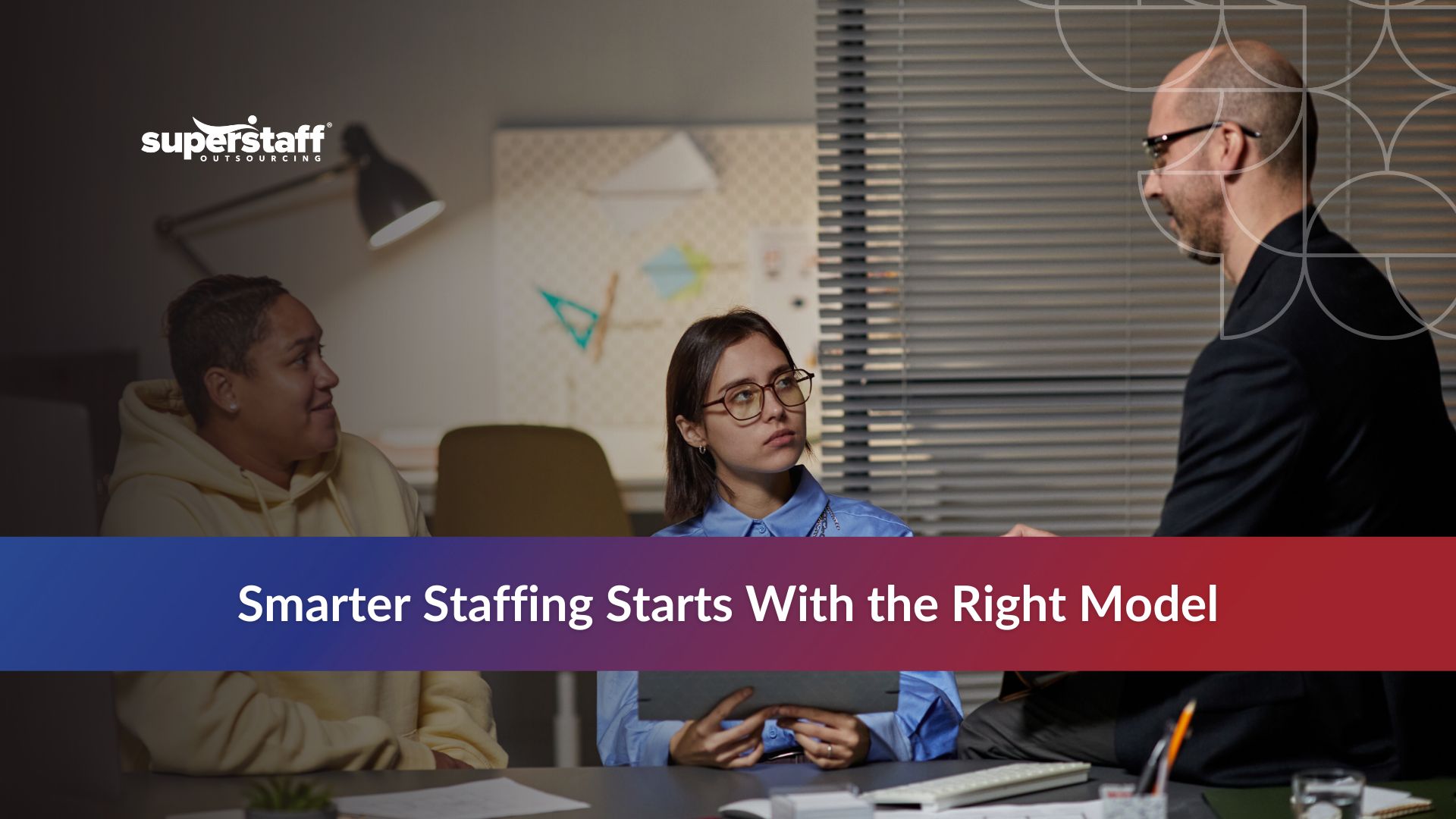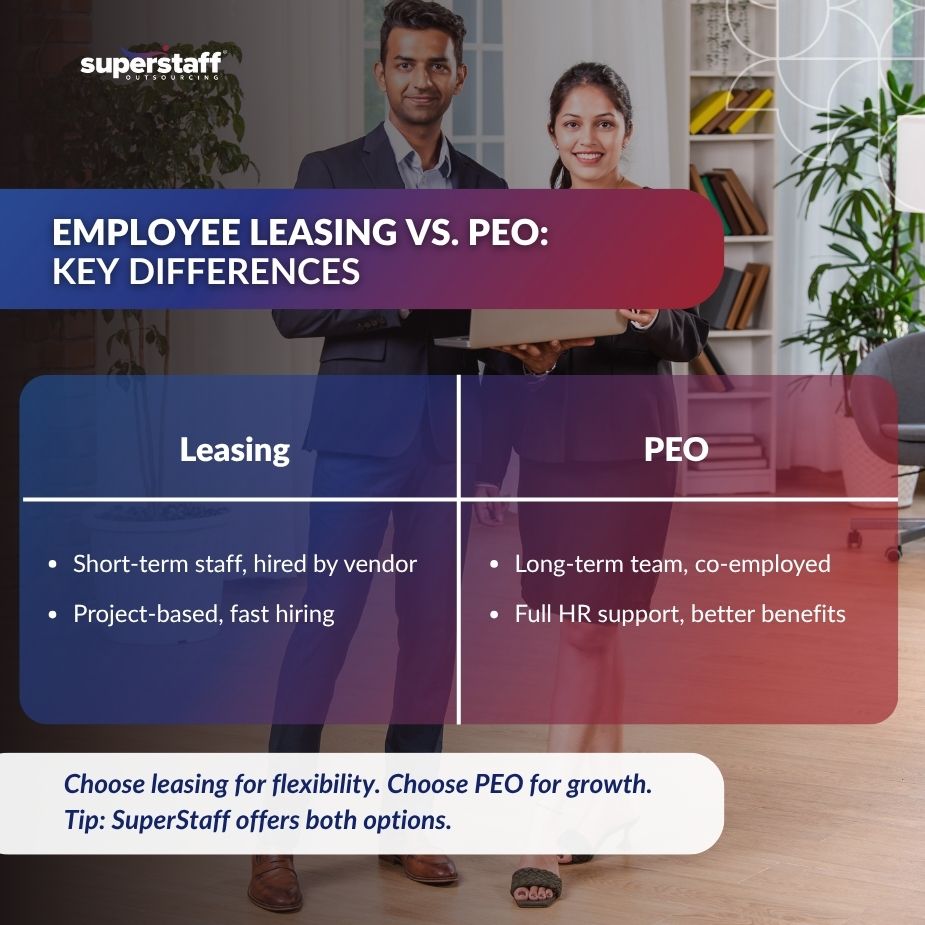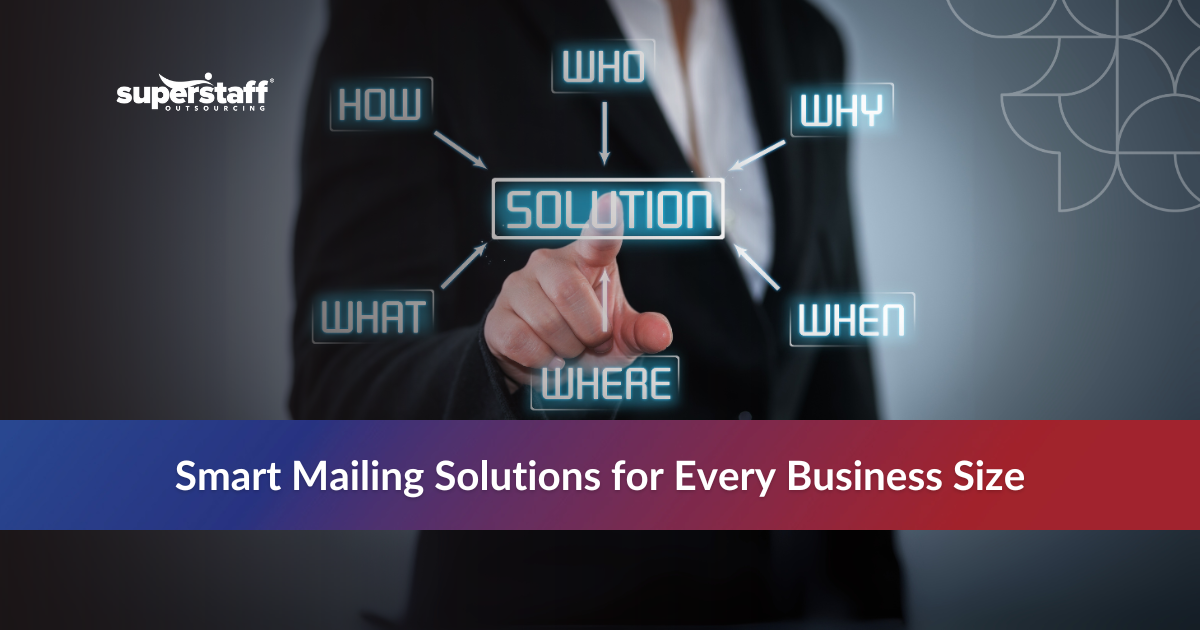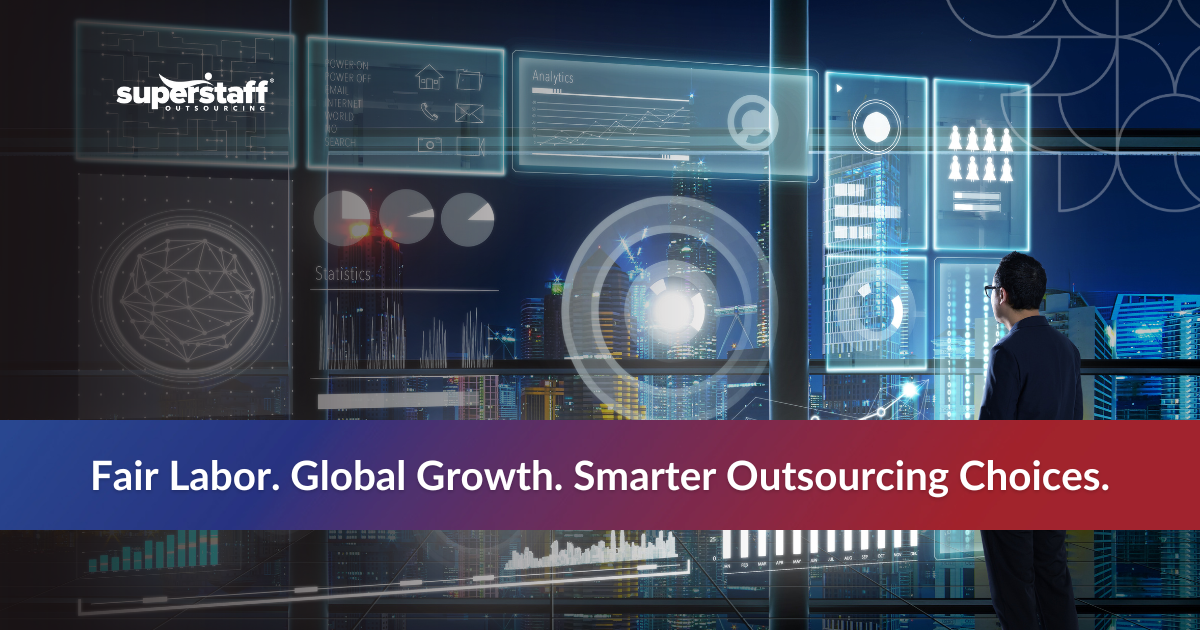
Hiring people is easy. Managing them well is where it gets challenging. As businesses grow, HR tasks like payroll, benefits, taxes, and legal compliance begin to pile up. Some companies choose to build internal HR departments. Others explore better ways to lighten the load; this is where employee leasing companies and professional employer organizations (PEOs) come in.
While these models may seem similar, they address different business needs. Understanding the difference between PEO and employee leasing can help you make the right choice. Whether you want to simplify operations, cut HR costs, or expand your team, it’s important to know how each works.
This guide breaks down how employee leasing and PEOs operate, how they differ, and which type of service might work best for your business.

Understanding the Two Models
Before making a decision, it’s important to define what each model offers and how it supports business operations.
-
Employee Leasing Companies
These providers offer workers who are technically employed by the leasing agency but assigned to work in your business. You control their tasks, but the leasing company handles payroll, benefits, taxes, and administrative paperwork. This is a go-to choice for companies needing temporary or seasonal help without handling full employment responsibilities.
-
Professional Employer Organizations (PEOs)
PEOs enter into a co-employment relationship with your business. They become the legal employer for HR and tax purposes, while you maintain control over daily operations. A PEO manages payroll, employee benefits, workers’ compensation, and compliance support, making it ideal for long-term business needs.
Key Differences Between PEOs and Employee Leasing
Although both offer HR support, they are structured differently and serve different types of businesses.
PEOs are typically used by companies seeking ongoing support with a stable, long-term workforce. They help manage legal compliance, reduce liability, and offer access to better benefits. In contrast, employee leasing companies are better suited for short-term needs or businesses with fluctuating labor demands.
Another major difference lies in control. With a PEO, you keep full authority over hiring and firing decisions. With employee leasing companies, the leasing firm often makes those calls, especially when it comes to temporary or project-based workers.
When to Choose Employee Leasing or PEO
The right model depends on your business needs, timeline, and goals.
Employee leasing companies are ideal if you’re hiring workers for a fixed period or need fast access to talent without investing in HR processes. This model works well for businesses in construction, retail, or logistics that experience seasonal shifts.
On the other hand, PEOs are best for growing companies that want to offer strong employee benefits, stay compliant with labor laws, and scale efficiently over time. If you need ongoing HR support but lack an in-house team, a PEO may be the smarter long-term option.
Pros and Cons of Each Model
Every model has benefits and limitations. Weighing them helps ensure your choice fits your strategy.
Employee Leasing Companies – Pros:
- Fast access to skilled labor
- Less paperwork and HR stress
- Scales up or down based on staffing needs
Cons:
- Limited control over employment terms
- Less integration with internal teams
- Higher cost if used for long-term roles
PEOs – Pros:
- Strong legal and compliance support
- Access to better benefits through group rates
- Ideal for team development and retention
Cons:
- Requires shared control over certain HR functions
- May involve changes in how your current HR processes work
For many companies, employee leasing companies offer a short-term fix, while PEOs support growth.
What to Look for in a Provider
Not all vendors are created equal. Whether you’re choosing between PEOs or employee leasing companies, it’s important to vet them properly.
Start by evaluating their industry experience. Have they worked with businesses similar to yours? Transparency is another critical factor. Ask for a clear, itemized cost breakdown. You should also confirm whether they help with taxes, onboarding, compliance, and benefits management.
For employee leasing companies, check how they handle worker quality, training, and transition processes. Make sure their service terms align with the duration and scale of your staffing needs.
Why the Right Fit Matters
Choosing between a PEO and employee leasing companies isn’t just about saving money. It’s about aligning your workforce model with your business goals. Short-term staffing needs may require flexibility, while long-term growth demands structure and support.
If you’re unsure, start by mapping out your workforce challenges. Are they related to compliance? Recruitment? Payroll? Your answers will help determine which model can solve those problems most effectively.
Common Misunderstandings
Some businesses confuse employee leasing companies with staffing agencies. While they may seem similar, leasing companies often provide a deeper level of administrative support. They act as the employer of record, taking on more responsibility than a traditional temp agency.
Likewise, many believe PEOs reduce control over your team. In reality, you still manage your staff, PEOs simply help with HR responsibilities that require legal and financial expertise.
Understanding these differences will help you make an informed decision instead of relying on assumptions.
Align Strategy With Service
There’s no one-size-fits-all solution. What works for one company may not work for another. The key is understanding how PEOs and employee leasing companies operate and choosing based on your team structure, project scope, and long-term goals.
If you’re scaling your business, need HR support, or want to reduce legal risk, a PEO might offer the coverage you need. If you’re looking for short-term staffing, employee leasing companies can provide quick and efficient solutions.
Find the Right Partner for Your Business
Now that you know what is the difference between a PEO and employee leasing companies, it’s time to take action. Choose the model that aligns with your company’s future and helps you focus on your core operations.
If you’re exploring trusted employee leasing companies or full-service HR solutions, SuperStaff offers flexible, scalable support tailored to your needs. Whether you need seasonal help or long-term HR guidance, they can help you stay productive, compliant, and competitive.






